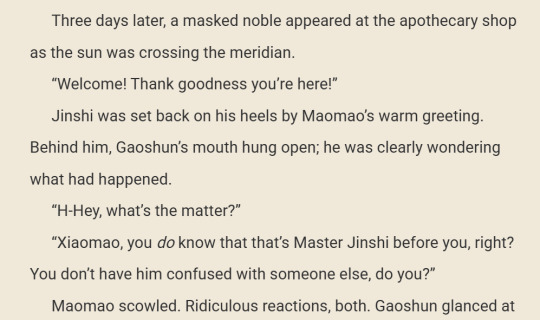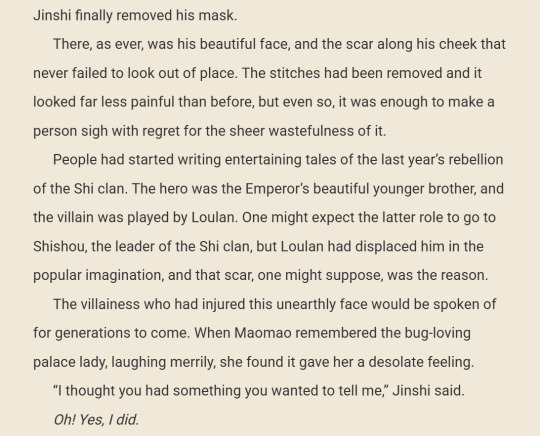#the library is OPEN
Explore tagged Tumblr posts
Text

Image quality is bad, sorry 😓
Vintage (80s? Not sure) paper bookmark, it says:
"10 minutes a day - let's read a book - Tezuka Production - Tokyo Publishing Commercial Association Youth Division"
A good advice I should take myself
36 notes
·
View notes
Text
If everyone has writing requests/ideas pls go send me asks!

I'm opening asks again for a brief period!
All my old messages have been deleted, feel free to re-send anything you already sent before.
-La Principessa della Squadra
#jjba#vento aureo#la squadra#jojo's bizarre adventure#the library is open#back back back back#back to you
12 notes
·
View notes
Text
Circulation desk

Find fics via tags:
dark fic, virginity loss, breeding kink, fic recs, fluff, angst, tbr
Joel Miller (no outbreak/au vs outbreak), Arthur Morgan, Logan, Negan, Acacius, Javier Peña, Pedro characters, Dexter/Brian, Peter Steele,
#this is mostly for me#tryna be hella organized#it’s the German in me#the library is open#be quiet#hope this helps#like I genuinely hope this helps#joel smut#fic recs
7 notes
·
View notes
Text
@nomadviii
#dalek#cybermen#dw#doctor who#the whoniverse#tiktok#video#gender#the library is open#reading is fundemental#sassy#vois humor#disco
47 notes
·
View notes
Text
Do NOT come @ me, bitch!💅🏼🐍🐍🐍

#the library is open#reading is fundamental#dead gay wizards#reading#read her for filthy#meme#wizard memes
15K notes
·
View notes
Text
listen you NEED to borrow that book from the library. i know youve got like 10 other books lined up to be read but you need to go to the library. remind the library that it's loved and cherished
#my library is closed (devastating) for renovations (yay!) and im being so okay about it#< update it’s open again and better than ever#library#libraries#isaac.txt
15K notes
·
View notes
Text
I ❤️ MY PUBLIC LIBRARY
#went to the grand re-opening of my library and they have so many cool new rooms and resources#also been going recently to some monthly events#truly HAVING FUN ISN'T HARD WHEN YOU HAVE A LIBRARY CARD!
13K notes
·
View notes
Text
I love you PBS I love you NPR I love you public libraries I love you wikipedia I love you project gutenberg I love you librivox I love you libby I love you hoopla I love you openlibrary I love you internet archive I love you resources that make information free and accessible to the public
#mine#pbs#npr#libraries#public libraries#wikipedia#librivox#libby#hoopla#open library#internet archive#resources
93K notes
·
View notes
Text
Saucy rogue. Come to me with thy alleged penchant for buggery and I’ll show thee how to fall backward, sirrah.
Thou know’st nothing of the art, little varlet.
#the library is open#elizabethan gays be like#medieval core#middle english#methinks#shakespeare#incorrect shakespeare quotes#💅💅💅
1 note
·
View note
Text
Welcome to my Library!
As it says in my bio, this will be where I will post all of my original work that I'm currently working on or if inspiration hits me! It might be a little overzealous but I'd like to keep my fanfics and my original writings separate to keep things organized. Anyway, my ask box for this blog is open if you'd like to send in prompts for me to work on!
0 notes
Text
As someone who has relied heavily on the Internet Archive for research for not only this blog but also professional uses, I urge people to show their support to archive and openlibrary. Make sure if you have an account there, change all of your passwords!! Be safe out there!
1K notes
·
View notes
Text

#river song#artists on tumblr#dr who#doctor who#eleventh doctor#silence in the library#forest of the dead#the pandorica opens#the impossible astronaut#a good man goes to war#the angels take manhattan#the wedding of river song#11th doctor#10th doctor#professor river song#commissons open#art commisions
916 notes
·
View notes
Text

"Publishers accused the nonprofit of infringing copyrights in 127 books from authors like Malcolm Gladwell, C.S. Lewis, Toni Morrison, J.D. Salinger and Elie Wiesel, by making the books freely available through its Free Digital Library.
The archive, which hosts more than 3.2 million copies of copyrighted books on its website, contended that the library was transformative because it made lending more convenient and served the public interest by promoting "access to knowledge.""
source 1
source 2
source 3
#destiel meme news#destiel meme#news#united states#us news#world news#internet archive#copyright#copyright law#copyright infringement#bookblr#protect access to knowledge#wayback machine#learning is a right#hachette v internet archive#hachette book group#penguin random house#harpercollins#wiley#open library#national emergency library#fair use#controlled digital lending
1K notes
·
View notes
Text
if it's "24/7 quiet hours" then why is the fucking fire alarm going off
#text#college tag#yesterday it went off twice in the library building i watched the firefighters out my window#and it didnt look like anything was burning + the fire truck alarms were off. so idk what all thgat's about#WAY more annoying when ur In the building tho. and the alarm was so fucking loud LIke tears were almost shed#trying to carry all my hastily-packed shit and cover my ears at the same time well it did not go well#shout out autistic* person with earplugs holding the door open who gave me The Head Nod as i was trying to accomplish this#(*they had a pin on their lanyard + ive heard them talk abt being autistic im not jjust assuming that LMAO)#fire tw
216 notes
·
View notes
Text
I'm sorry who was gonna tell me the LNs are such a riot??? because this shit gets hilarious.
Maomao showing the barest form of positive emotion towards Jinshi making Gaoshun and Jinshi genuinely freaked out

And then she gets distracted by going on a three paragraph narration related to how beautiful Jinshi is while glaring at both of them.

"Oh! Yes, I did."
You really lost your train of thought so much you forgot the whole reason you wanted to talk to him??? You know, warning him about a plague and famine about to hit the country. You know, that reason?
I can finally see why the LN readers have been like "No, no. Maomao is definitely attracted to Jinshi" since forever. I feel like she is not down this bad in the manga and anime adaptations.
#i picked up from where the 1st cour this season ended and am now on vol. 5#yes the new opening and ending are killing me#i'm ignoring the pain#also apparently my library has all of the LNs digitally so if ur looking where to read you might check if ur library has hoopla#the apothecary diaries#the apothecary dairies light novels#kusuriya no hitorigoto#knh
168 notes
·
View notes
Text
MIT libraries are thriving without Elsevier

I'm coming to BURNING MAN! On TUESDAY (Aug 27) at 1PM, I'm giving a talk called "DISENSHITTIFY OR DIE!" at PALENQUE NORTE (7&E). On WEDNESDAY (Aug 28) at NOON, I'm doing a "Talking Caterpillar" Q&A at LIMINAL LABS (830&C).

Once you learn about the "collective action problem," you start seeing it everywhere. Democrats – including elected officials – all wanted Biden to step down, but none of them wanted to be the first one to take a firm stand, so for months, his campaign limped on: a collective action problem.
Patent trolls use bullshit patents to shake down small businesses, demanding "license fees" that are high, but much lower than the cost of challenging the patent and getting it revoked. Collectively, it would be much cheaper for all the victims to band together and hire a fancy law firm to invalidate the patent, but individually, it makes sense for them all to pay. A collective action problem:
https://locusmag.com/2013/11/cory-doctorow-collective-action/
Musicians get royally screwed by Spotify. Collectively, it would make sense for all of them to boycott the platform, which would bring it to its knees and either make it pay more or put it out of business. Individually, any musician who pulls out of Spotify disappears from the horizon of most music fans, so they all hang in – a collective action problem:
https://pluralistic.net/2024/06/21/off-the-menu/#universally-loathed
Same goes for the businesses that get fucked out of 30% of their app revenues by Apple and Google's mobile business. Without all those apps, Apple and Google wouldn't have a business, but any single app that pulls out commits commercial suicide, so they all hang in there, paying a 30% vig:
https://pluralistic.net/2024/08/15/private-law/#thirty-percent-vig
That's also the case with Amazon sellers, who get rooked for 45-51 cents out of every dollar in platform junk fees, and whose prize for succeeding despite this is to have their product cloned by Amazon, which underprices them because it doesn't have to pay a 51% rake on every sale. Without third-party sellers there'd be no Amazon, but it's impossible to get millions of sellers to all pull out at once, so the Bezos crime family scoops up half of the ecommerce economy in bullshit fees:
https://pluralistic.net/2023/11/06/attention-rents/#consumer-welfare-queens
This is why one definition of "corruption" is a system with "concentrated gains and diffuse losses." The company that dumps toxic waste in your water supply reaps all the profits of externalizing its waste disposal costs. The people it poisons each bear a fraction of the cost of being poisoned. The environmental criminal has a fat warchest of ill-gotten gains to use to bribe officials and pay fancy lawyers to defend it in court. Its victims are each struggling with the health effects of the crimes, and even without that, they can't possibly match the polluter's resources. Eventually, the polluter spends enough money to convince the Supreme Court to overturn "Chevron deference" and makes it effectively impossible to win the right to clean water and air (or a planet that's not on fire):
https://www.cfr.org/expert-brief/us-supreme-courts-chevron-deference-ruling-will-disrupt-climate-policy
Any time you encounter a shitty, outrageous racket that's stable over long timescales, chances are you're looking at a collective action problem. Certainly, that's the underlying pathology that preserves the scholarly publishing scam, which is one of the most grotesque, wasteful, disgusting frauds in our modern world (and that's saying something, because the field is crowded with many contenders).
Here's how the scholarly publishing scam works: academics do original scholarly research, funded by a mix of private grants, public funding, funding from their universities and other institutions, and private funds. These academics write up their funding and send it to a scholarly journal, usually one that's owned by a small number of firms that formed a scholarly publishing cartel by buying all the smaller publishers in a string of anticompetitive acquisitions. Then, other scholars review the submission, for free. More unpaid scholars do the work of editing the paper. The paper's author is sent a non-negotiable contract that requires them to permanently assign their copyright to the journal, again, for free. Finally, the paper is published, and the institution that paid the researcher to do the original research has to pay again – sometimes tens of thousands of dollars per year! – for the journal in which it appears.
The academic publishing cartel insists that the millions it extracts from academic institutions and the billions it reaps in profit are all in service to serving as neutral, rigorous gatekeepers who ensure that only the best scholarship makes it into print. This is flatly untrue. The "editorial process" the academic publishers take credit for is virtually nonexistent: almost everything they publish is virtually unchanged from the final submission format. They're not even typesetting the paper:
https://link.springer.com/article/10.1007/s00799-018-0234-1
The vetting process for peer-review is a joke. Literally: an Australian academic managed to get his dog appointed to the editorial boards of seven journals:
https://www.atlasobscura.com/articles/olivia-doll-predatory-journals
Far from guarding scientific publishing from scams and nonsense, the major journal publishers have stood up entire divisions devoted to pay-to-publish junk science. Elsevier – the largest scholarly publisher – operated a business unit that offered to publish fake journals full of unreveiwed "advertorial" papers written by pharma companies, packaged to look like a real journal:
https://web.archive.org/web/20090504075453/http://blog.bioethics.net/2009/05/merck-makes-phony-peerreview-journal/
Naturally, academics and their institutions hate this system. Not only is it purely parasitic on their labor, it also serves as a massive brake on scholarly progress, by excluding independent researchers, academics at small institutions, and scholars living in the global south from accessing the work of their peers. The publishers enforce this exclusion without mercy or proportion. Take Diego Gomez, a Colombian Masters candidate who faced eight years in prison for accessing a single paywalled academic paper:
https://www.eff.org/deeplinks/2014/07/colombian-student-faces-prison-charges-sharing-academic-article-online
And of course, there's Aaron Swartz, the young activist and Harvard-affiliated computer scientist who was hounded to death after he accessed – but did not publish – papers from MIT's JSTOR library. Aaron had permission to access these papers, but JSTOR, MIT, and the prosecutors Stephen Heymann and Carmen Ortiz argued that because he used a small computer program to access the papers (rather than clicking on each link by hand) he had committed 13 felonies. They threatened him with more than 30 years in prison, and drew out the proceedings until Aaron was out of funds. Aaron hanged himself in 2013:
https://en.wikipedia.org/wiki/Aaron_Swartz
Academics know all this terrible stuff is going on, but they are trapped in a collective action problem. For an academic to advance in their field, they have to publish, and they have to get their work cited. Academics all try to publish in the big prestige journals – which also come with the highest price-tag for their institutions – because those are the journals other academics read, which means that getting published is top journal increases the likelihood that another academic will find and cite your work.
If academics could all agree to prioritize other journals for reading, then they could also prioritize other journals for submissions. If they could all prioritize other journals for submissions, they could all prioritize other journals for reading. Instead, they all hold one another hostage, through a wicked collective action problem that holds back science, starves their institutions of funding, and puts their colleagues at risk of imprisonment.
Despite this structural barrier, academics have fought tirelessly to escape the event horizon of scholarly publishing's monopoly black hole. They avidly supported "open access" publishers (most notably PLoS), and while these publishers carved out pockets for free-to-access, high quality work, the scholarly publishing cartel struck back with package deals that bundled their predatory "open access" journals in with their traditional journals. Academics had to pay twice for these journals: first, their institutions paid for the package that included them, then the scholars had to pay open access submission fees meant to cover the costs of editing, formatting, etc – all that stuff that basically doesn't exist.
Academics started putting "preprints" of their work on the web, and for a while, it looked like the big preprint archive sites could mount a credible challenge to the scholarly publishing cartel. So the cartel members bought the preprint sites, as when Elsevier bought out SSRN:
https://www.techdirt.com/2016/05/17/disappointing-elsevier-buys-open-access-academic-pre-publisher-ssrn/
Academics were elated in 2011, when Alexandra Elbakyan founded Sci-Hub, a shadow library that aims to make the entire corpus of scholarly work available without barrier, fear or favor:
https://sci-hub.ru/alexandra
Sci-Hub neutralized much of the collective action trap: once an article was available on Sci-Hub, it became much easier for other scholars to locate and cite, which reduced the case for paying for, or publishing in, the cartel's journals:
https://arxiv.org/pdf/2006.14979
The scholarly publishing cartel fought back viciously, suing Elbakyan and Sci-Hub for tens of millions of dollars. Elsevier targeted prepress sites like academia.edu with copyright threats, ordering them to remove scholarly papers that linked to Sci-Hub:
https://svpow.com/2013/12/06/elsevier-is-taking-down-papers-from-academia-edu/
This was extremely (if darkly) funny, because Elsevier's own publications are full of citations to Sci-Hub:
https://eve.gd/2019/08/03/elsevier-threatens-others-for-linking-to-sci-hub-but-does-it-itself/
Meanwhile, scholars kept the pressure up. Tens of thousands of scholars pledged to stop submitting their work to Elsevier:
http://thecostofknowledge.com/
Academics at the very tops of their fields publicly resigned from the editorial board of leading Elsevier journals, and published editorials calling the Elsevier model unethical:
https://www.theguardian.com/science/blog/2012/may/16/system-profit-access-research
And the New Scientist called the racket "indefensible," decrying the it as an industry that made restricting access to knowledge "more profitable than oil":
https://www.newscientist.com/article/mg24032052-900-time-to-break-academic-publishings-stranglehold-on-research/
But the real progress came when academics convinced their institutions, rather than one another, to do something about these predator publishers. First came funders, private and public, who announced that they would only fund open access work:
https://www.nature.com/articles/d41586-018-06178-7
Winning over major funders cleared the way for open access advocates worked both the supply-side and the buy-side. In 2019, the entire University of California system announced it would be cutting all of its Elsevier subscriptions:
https://www.science.org/content/article/university-california-boycotts-publishing-giant-elsevier-over-journal-costs-and-open
Emboldened by the UC system's principled action, MIT followed suit in 2020, announcing that it would no longer send $2m every year to Elsevier:
https://pluralistic.net/2020/06/12/digital-feudalism/#nerdfight
It's been four years since MIT's decision to boycott Elsevier, and things are going great. The open access consortium SPARC just published a stocktaking of MIT libraries without Elsevier:
https://sparcopen.org/our-work/big-deal-knowledge-base/unbundling-profiles/mit-libraries/
How are MIT's academics getting by without Elsevier in the stacks? Just fine. If someone at MIT needs access to an Elsevier paper, they can usually access it by asking the researchers to email it to them, or by downloading it from the researcher's site or a prepress archive. When that fails, there's interlibrary loan, whereby other libraries will send articles to MIT's libraries within a day or two. For more pressing needs, the library buys access to individual papers through an on-demand service.
This is how things were predicted to go. The libraries used their own circulation data and the webservice Unsub to figure out what they were likely to lose by dropping Elsevier – it wasn't much!
https://unsub.org/
The MIT story shows how to break a collective action problem – through collective action! Individual scholarly boycotts did little to hurt Elsevier. Large-scale organized boycotts raised awareness, but Elsevier trundled on. Sci-Hub scared the shit out of Elsevier and raised awareness even further, but Elsevier had untold millions to spend on a campaign of legal terror against Sci-Hub and Elbakyan. But all of that, combined with high-profile defections, made it impossible for the big institutions to ignore the issue, and the funders joined the fight. Once the funders were on-side, the academic institutions could be dragged into the fight, too.
Now, Elsevier – and the cartel – is in serious danger. Automated tools – like the Authors Alliance termination of transfer tool – lets academics get the copyright to their papers back from the big journals so they can make them open access:
https://pluralistic.net/2021/09/26/take-it-back/
Unimaginably vast indices of all scholarly publishing serve as important adjuncts to direct access shadow libraries like Sci-Hub:
https://pluralistic.net/2021/10/28/clintons-ghost/#cornucopia-concordance
Collective action problems are never easy to solve, but they're impossible to address through atomized, individual action. It's only when we act as a collective that we can defeat the corruption – the concentrated gains and diffuse losses – that allow greedy, unscrupulous corporations to steal from us, wreck our lives and even imprison us.

Community voting for SXSW is live! If you wanna hear RIDA QADRI and me talk about how GIG WORKERS can DISENSHITTIFY their jobs with INTEROPERABILITY, VOTE FOR THIS ONE!

If you'd like an essay-formatted version of this post to read or share, here's a link to it on pluralistic.net, my surveillance-free, ad-free, tracker-free blog:
https://pluralistic.net/2024/08/16/the-public-sphere/#not-the-elsevier
#pluralistic#libraries#glam#elsevier#monopolies#antitrust#scams#open access#scholarship#education#lis#oa#publishing#scholarly publishing#sci-hub#preprints#interlibrary loan#aaron swartz#aaronsw#collective action problems
634 notes
·
View notes